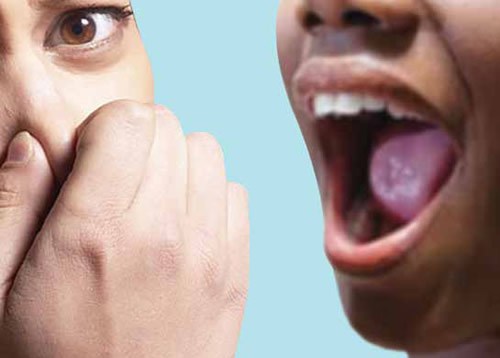By Eriah Lule
I believe we’ve all ever had or been around a person with bad breath. The uncomfortability and irritation you always feel around them, some think it’s poor hygiene, but no, it is a healthy challenge to the victim.
The condition is called halitosis and it cuts across all age brackets. There are many potential causes of bad breath. When you brush your teeth, you prevent the buildup of bacteria on decaying food particles that can get stuck on your teeth or gums. These bacteria produce sulfur compounds that can lead to bad breath, especially if they don’t get brushed away.
Most of the time, the cause originates in the mouth, but other factors outside the mouth may be at the bottom of the problem.
According to the Daily Monitor of September 30, 2019, Dr. Maria Gorretti Nakyonyi, a dental surgeon at Jubilee Dental, said many people with bad breath are usually oblivious to their condition. It is those with whom they interact who usually notice.
“Bad breath from a patient can even be smelt through the face mask that dentists wear,” she said.
Bad breath is usually an indication of a larger issue.
Dr Nakyonyi agrees, adding that most cases of bad breath are due to poor oral hygiene and gum disease.
But, what are the causes of bad breath even after brushing?
Cavities and gum diseases.
There are small holes in teeth that can retain food. The food rots as the bacteria that feed on it also produce foul-smelling compounds, causing bad breath.
Dental cavities can be filled or treated according to how deep they are. Badly broken teeth or roots of teeth can equally be removed from your mouth to avoid food retention, according to Dr. Nakyonyi.The bacteria that causes bad breath can hide in cavities in your teeth. This makes it difficult to get rid of the bacteria when you’re brushing your teeth because it’s hidden in places that you can’t reach.Similarly, these bacteria can hide in deep pockets caused by gum disease.
Poorteethbrushinghabits
Poor tooth brushing habits, such as not brushing the tongue, are one of the most common causes of bad breath.
Improper brushing causes food remains to stay in the mouth, making it a nidus (a place in which bacteria have multiplied or may multiply) for bacteria.
It is the rotting food and bacterial waste that cause bad breath.
It is important to learn the right and proper way to brush your teeth. It’s equally important that the tongue never be forgotten when cleaning.
Poor brushing damages your gums and leads to gum disease, which is also associated with bad breath as these gum defects create areas of food retention.
This is why it is important to brush at least twice a day; in the morning, after breakfast, and in the evening, after dinner, “Dr. Nakyonyi advises.”
When brushing your teeth, it is important to ensure that all food particles are removed. This can be done by flossing.
Dental floss is a cord of thin filaments used to remove food and dental plaque from between teeth in areas a toothbrush is unable to reach.
Postnasal drip
Postnasal drip (mucus that drips from the back of your nose into your throat) may also contribute to bad breath. The mucus can attract bacteria, which, in turn, may create an odor that causes your breath to smell bad.
Food
According to Dr Twaha, the breakdown of food particles in and around your teeth can increase bacteria and cause a foul odour. Certain foods, like onions and garlic, may linger on your breath even after you’ve brushed your teeth.
For example, it can take a day or more for garlic breath to go away. Once the garlic reaches your stomach, the oils pass into your bloodstream where they make their way into your lungs and breath.
In a 2016 study, Trusted Source, researchers found that raw apples, raw lettuce, and mint leaves were able to deodorize garlic breath.
Additionally, it keeps the bacteria in your mouth at a manageable level, washes food particles out of your mouth, and keeps your mouth hydrated.
When your saliva glands don’t produce enough saliva, it can cause dry mouth. Dry mouth can result in more bacteria buildup on your teeth. This can cause bad breath and also increase your risk of tooth decay and gum disease.
Many types of medications, tobacco use, and alcohol use can lead to increased mouth dryness.
If you’re already practicing good dental hygiene but still have bad breath after brushing, consider talking with your dentist. They can help you find the root cause and recommend the best treatment option.


